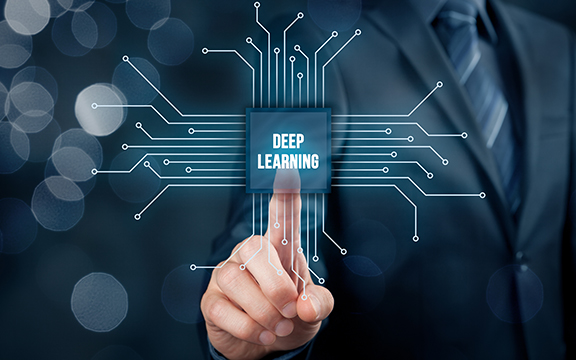TECHROAD - A series of credit-eligible courses recognized by industry.
The track is made of 3 main sections, leads you an introduction to the world of deep learning, and represents its true bleeding edge. You will have a great overview about deep learning algorithms and deep learning application .we will show you how to use deep learning & artificial intelligent to deploy your smart application in real world, and get some skills that are very important and required for deep learning jobs such as Tensor flow tool, Neural Networks, also we will go through different domain and problems of deep learning.
Requirements
Good Mathematical background
The target audience:
Beginner to Intermediate level of Machine Learning Engineers.
Track Objectives
After Completing this Course Learner will be able to:
Develop solid Understanding of Artificial Intelligent and Deep Learning
Apply Concepts and Enrich our Tool set
Deploy Artificial intelligent and Deep Learning in real application
Align with state of the Art Researcher.
Frequently Asked Questions
What is deep learning?
Deep learning refers to artificial neural networks that are composed of many layers. It's a growing trend in ML due to some favorable results in applications where the target function is very complex and the datasets are large.
What are the best resources to learn about deep learning?
There are a lot of very good resources on the net to learn about deep learning.
Once you are familiar with the basics and the terminology (which is not much I should say), you can read tutorials of deep learning software such as Caffe (Caffe | Deep Learning Framework , read through the Example section), and Theano (Deep Learning Tutorials).
If you are feeling adventurous, you can also look through the proceedings and submitted papers for conferences such as ICLR and NIPS. Deep learning being a fast growing area, once you understand the basics it should not be much of an effort to understand what is being talked about in most of the papers.
Last of all, one of the pioneers of deep learning, Yoshua Bengio is also on Quora. you can probably ask questions to him.
Is it important to understand the back-propagation procedure when working as a practitioner with deep learning libraries?
Yes. Training neural nets with no understanding of the underlying optimization is like watching a magic show. Here's a motivating story:
Let's say you have a deep neural net to perform image classification, consisting of five convolutional layers followed by three fully connected layers using ReLUs. You train it on ImageNet and it performs quite well. Now you would like to use this trained network to perform different image classification tasks, where there is less data.
